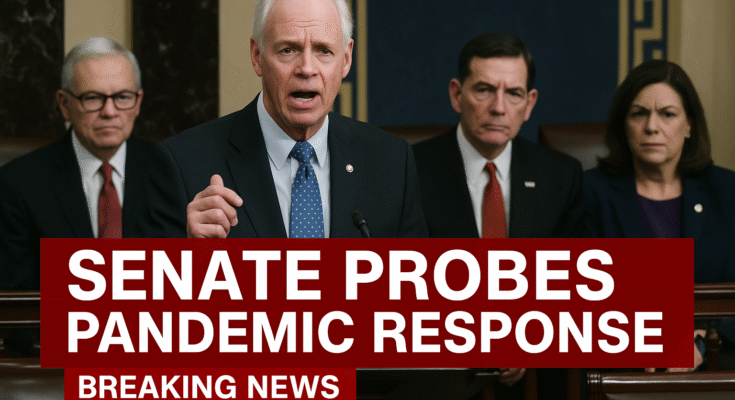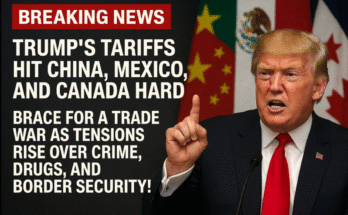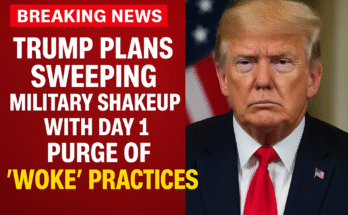The United States Senate is intensifying its investigation into the handling of the pandemic, with Senator Ron Johnson leading the charge for greater transparency from federal health agencies. The Senate’s Homeland Security and Governmental Affairs Committee is scrutinizing records related to the pandemic, citing what they describe as an “appalling” lack of cooperation from the current Biden administration.
Key Concerns and Allegations:
- Withheld Information: The Senate alleges that crucial emails and other materials detailing the government’s pandemic response have been withheld or heavily redacted. This obstruction, they argue, has hindered Congressional oversight and potentially jeopardized public health.
- Redacted Documents: Publicly released documents under Freedom of Information Act (FOIA) requests have been so heavily redacted that they are often incomprehensible. Senator Johnson suggests this is a concerted effort to obscure the public’s understanding of adverse events related to certain medical interventions.
- CDC’s Handling of Adverse Event Reports:
- In early 2021, the CDC reportedly received data from Pfizer concerning heart-related issues. A 14-page safety evaluation report on these conditions, prepared by BioNTech/Pfizer and provided to then-CDC Director Rochelle Walensky, was almost entirely redacted.
- Despite this data, and internal discussions about issuing a Health Alert Network (HAN) message to warn the public, the CDC ultimately did not issue the alert. Instead, they published “clinical considerations” on their website, a move critics argue was insufficient to properly inform the public and medical professionals.
- Emails suggest that the decision not to issue the HAN alert may have been influenced by a desire to avoid appearing “alarmist” and potentially by pharmaceutical company employees.
- White House Involvement: In May 2021, as CDC and FDA officials were deliberating on how to communicate potential risks, the Biden White House reportedly sent top public health officials, including Rochelle Walensky, Anthony Fauci, and Francis Collins, a 17-page document of “talking points for tough Q&A” on COVID-19. The content of these talking points remains largely unknown due to redactions.
- Lack of Cooperation: Senator Johnson states that his office has sent over 60 letters to federal agencies regarding various aspects of the pandemic response, including the origins of the virus, early treatment, and the development and safety of medical interventions. He claims these inquiries have been largely ignored or met with incomplete responses.
Senator Johnson’s Stance and Future Actions:
Senator Johnson has vowed that the obstruction will end, stating that if he becomes chairman of the Permanent Subcommittee on Investigations in the next Congress, any attempts to withhold documents will be met with subpoenas. He is demanding unredacted versions of critical documents, including the Pfizer safety report, communications related to the unissued HAN alert, and the White House talking points.
Broader Concerns Raised by Senator Johnson:
During a podcast appearance, Senator Johnson highlighted what he sees as fundamental problems corrupting medical research and public health:
- Corruption of Basic Science: Echoing President Eisenhower’s warnings, he believes public funding of research has corrupted basic science. He cited instances of academic journals retracting numerous compromised studies and quoted a former editor-in-chief of the New England Journal of Medicine who stated it’s “no longer possible to believe much of the clinical research that is published.”
- Pharmaceutical Advertising: Johnson argues that direct-to-consumer pharmaceutical advertising serves to “capture the narrative” rather than genuinely inform, pointing to how this influenced the COVID-19 response.
- Lack of Liability for Vaccine Manufacturers: He contends that the complete liability protection afforded to vaccine manufacturers disincentivizes thorough safety scrutiny and contributes to an ever-expanding vaccine schedule.
The Senator emphasized the need for a full look back and assessment of the pandemic response, seeking to identify who may have profited, committed crimes, or exploited the American people for political reasons, and whether there should be repercussions. The demand for these records underscores a growing call for accountability and transparency in public health decisions.



